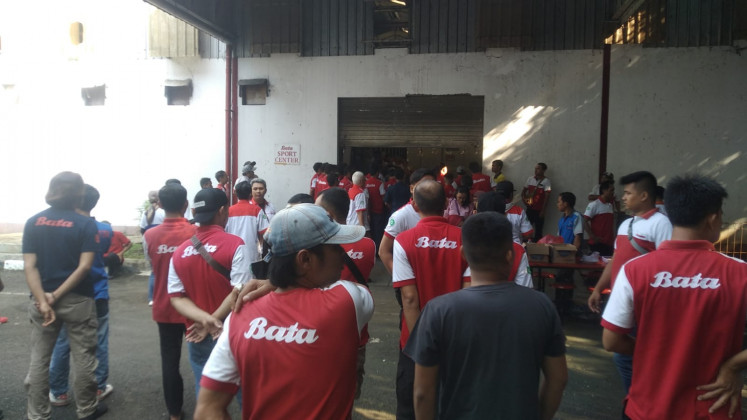US pharma firms think twice about relocating to Indonesia: Experts
Change Size
 Coordinating Maritime Affairs and Investment Minister Luhut Pandjaitan. (JP/Seto Wardhana)
Coordinating Maritime Affairs and Investment Minister Luhut Pandjaitan. (JP/Seto Wardhana)
I
ndonesia’s infamous red tape could dissuade investment from US pharmaceutical companies looking to relocate from China, experts say.
The Indonesian government is in talks over the possibility of offering US-controlled pharmaceutical firms that wish to move factories out of China a new production base, according to Coordinating Maritime Affairs and Investment Minister Luhut Pandjaitan.
“President [Donald] Trump is currently at odds with his Chinese counterparts, and he wants to relocate industries out of China,” Luhut said during an interview with state broadcaster RRI on May 9. The government is now preparing a 4,000-hectare special economic zone for the industry in the Brebes industrial zone (KIB) in Central Java.
“President Jokowi [Joko Widodo] has been frequently discussing the [pharmaceutical industry] relocation with President Trump,” Luhut said. He added that 90 percent of pharmaceutical product compounds were still unavailable in the country and needed to be imported.
Indonesian Pharmaceutical Association (GP Farmasi) chairman Tirto Koesnandi said an unsupportive regulatory framework and high wages could deter investors from setting up operations in the country.
"Our investment climate is still unattractive for future investors, including US pharmaceutical companies. Wages are still too high, and there are many regulations that make investment unattractive,” Tirto told The Jakarta Post on Tuesday.
Statements issued by the US State Department in 2019 noted that legal uncertainty, economic nationalism and restrictions to imports and exports were some of the factors that made investing in Indonesia challenging.
The fact that Indonesia ranked 73rd on the World Bank’s ease of doing business index, last updated in October 2019, also discourages investors, as neighboring Malaysia and Thailand fare better in 12th and 21st position, respectively.
“I think it’s quite challenging for corporations to quickly move their operations to Indonesia if we don’t improve our regulatory [environment]. While Trump could encourage companies to relocate their facilities, in the end it’s the companies that make the decision,” Center for Indonesian Policy Studies (CIPS) researcher Andre Surianta told the Post.
For the pharmaceutical industry, Andre said, a major factor that dissuaded investors were regulations mandating the use of locally-sourced raw materials.
“We are unable to provide raw materials for the pharmaceutical industry because we don’t have the supply chain. I think we should relax the regulation on local content if we want to see the industry come in,” he said.
Indonesian workers’ low productivity is another major challenge for the government as it seeks to attract investors.
According to a survey conducted by the Japan External Trade Organization (JETRO), Indonesia’s manufacturing plants’ productivity only scored 74.4 on an index where the respondents’ Japanese companies’ productivity defines 100.
Indonesia’s score is lower than those of the Philippines, Singapore, Thailand and Vietnam at 86.3, 82.7, 80.1 and 80.0, respectively.
The survey also shows that more than half of the Japanese companies are not satisfied with the minimum wage compared to the worker’s productivity.
“Even though the pharmaceutical industry is a capital-intensive investment, which makes workers’ productivity less [impactful], investors still list our human capital as one of their greatest concerns,” Andre said.
“Human capital development should be our long-term priority if we want to increase our attractiveness to foreign investors.”
He also said that industrial zones with sufficient infrastructure and accessibility were not easy to find in Indonesia, which could make investors opt for other countries.
Brebes regency’s development planning head Edy Kusmartono acknowledged that the local administration had heard about the potential relocation, even though there had been no formal notification from the central government so far.
“We have 3,975 ha of land in the KIB and manpower of 20,000 people who are ready to work inside the KIB. If [the central government and investors] are interested, they could set up the industry here,” Edy told Kompas daily newspaper on May 11.
He further said that the KIB was still waiting for its masterplan that was being formed by the zone’s developer PT Kawasan Industri Wijayakusuma, which includes the business scheme, consortium appointment and land acquisition, before starting its physical construction.









